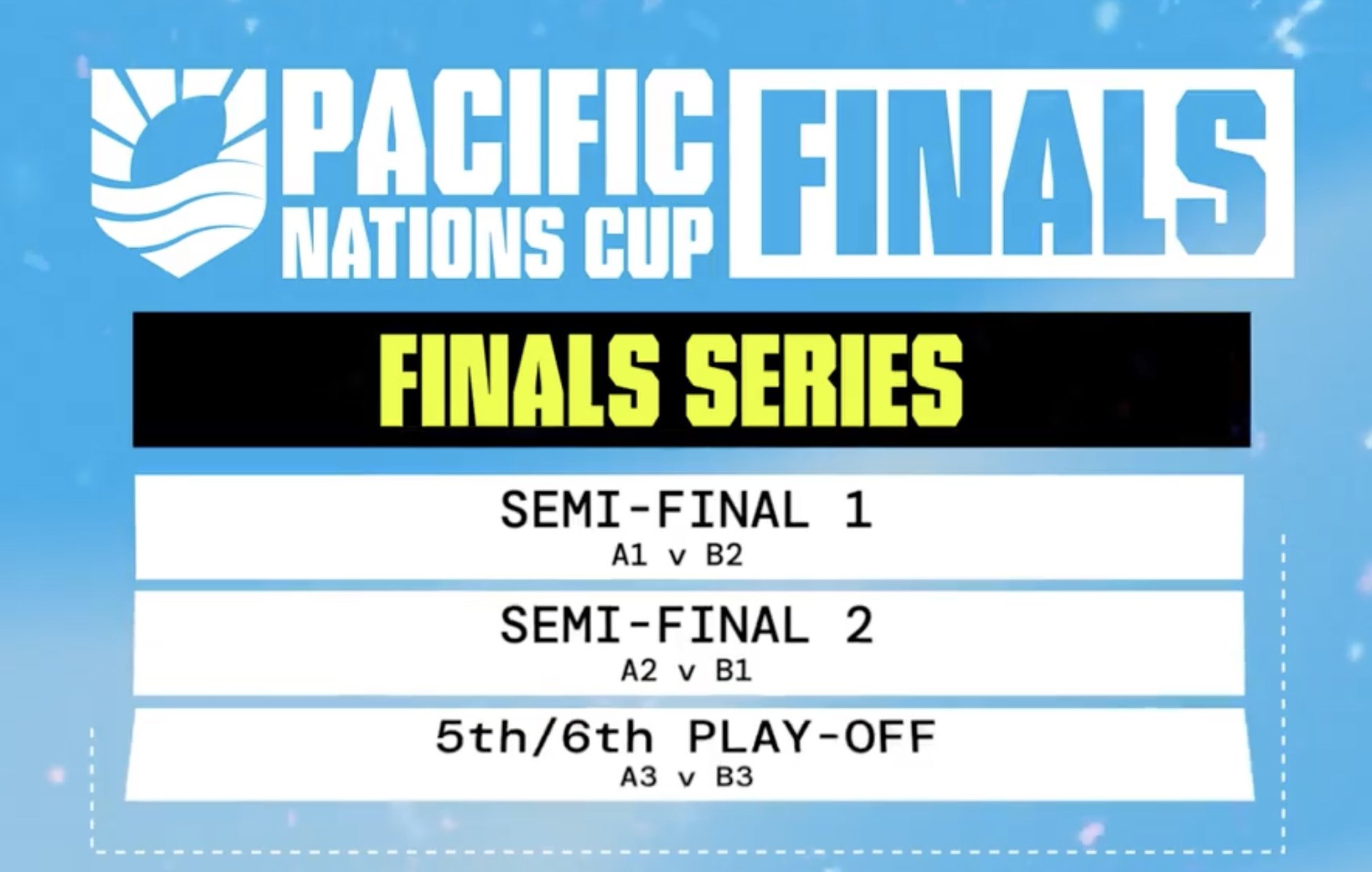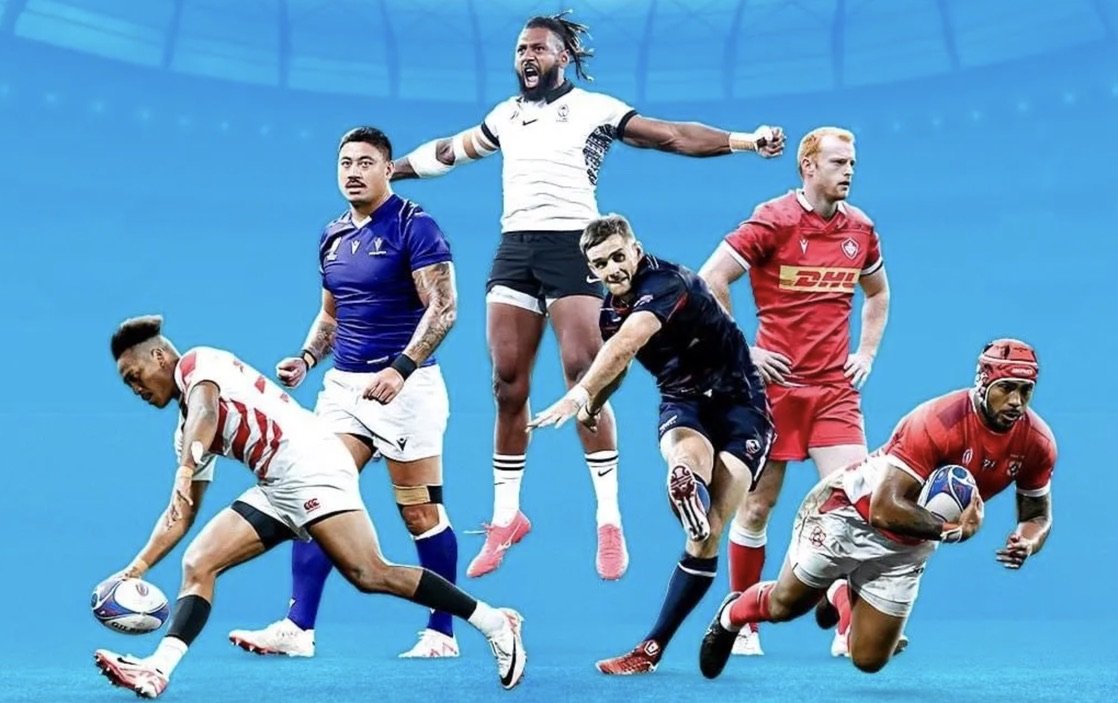ENR: Pacific Nations Cup (1)
While the Rugby Championship ticks over and the European club games start to peak their heads around the corner, the Pacific Nations Cup began last weekend.
Since its inception in 2006 the format and teams involved have changed nearly every year, potentially stymying the opportunities to create the deep rivalries rugby sells itself on. The opening years were dominated by offshoots of the All Blacks (Maori’s and Junior AB’s) and Australia’s A-side which one would argue didn’t align with the initial goal of the tournament, “to develop the lower ranked nations in the pacific.”
This year is looking promising with a 6 team roster split into two pools of three. Fiji, Tonga and Samoa making up pool A while USA, Japan and Canada pool B. It isn’t clear whether the pools have been decided due to the World Rugby ranking system or for geographical and travel reasons, the later for me seeming to make more sense. Each team will play one home and away game before everyone travels to Japan for the finals. PNC organisers have already confirmed that next year the finals will be in the USA and will switch between these two nations for the foreseeable future. I’m relieved to see there’s been some future proofing of this tournament, rugby often has grand ideas that fall flat when the reality of flying teams across vast distances is realised. Only time will tell if this format will be successful in developing the nations involved instead of bankrupting them.
After the pool stages the first of each groups plays the second in the other in a semi-final, the two last placed teams play each other for the fifth place playoff. Winners of the semi’s go through to the final and the losers playing a third place playoff on the same day.
The tournament kicked off in pool A, where Fiji hosted Samoa. On the dried turf and in front of a disappointingly threadbare crowd, the teams performed their respective war dances simultaneously before Fiji opened dominantly. Scoring within five minutes from some heavy carrying, it took time for Samoa to find their stride in attack, overplaying themselves in the wrong areas. They eventually found the patience to work the phases and were rewarded with a try of their own which put them ahead. Fiji were getting awarded penalties but several inaccuracies at the lineout meant they didn’t manage to capitalise on these. After conceding a second penalty kick and feeling the pressure, Fiji reverted back to their probing kicking game. This moved the Samoan defence around enough to find mismatches and with a dominant carry from Masi, Fiji were now within a point at 12-13. The home team had to survive the remainder of the half with fourteen due to a mitigated high tackle and Samoa took the easy three. Fiji had the last kick of the half and they headed to the sheds at 15-16.
First points in the second half went to Fiji with a penalty kick and a follow up try, which was only delayed briefly by the ref sending off Samoa’s, Leilua for a cynical tackle off the ball after a line break. With the momentum clearly shifted into Fiji’s favour, the impressive attack Samoa showed in the first half seemed to peter out, failing to move or make dents in the Fijian defence. With the extra man on the field, Fiji turned the screw and crossed the line once again to extend their lead to 32-16. Before the sin bin was up for Samoa they received another yellow for a tackle after the whistle had gone. The final moments of the game was all Fiji attack, the only respite for Samoa came from Fijian errors. Regardless of the mistakes, Fiji still managed to score two tries to close the game out. Both through exceptional passing against a scattered Samoan defence.
The unforced error count for both teams was difficult to watch at times but expected when it comes to opening games of tournaments. Samoa’s defence had the intensity in their one on one tackles but lacked organisation in defence which didn’t stand a chance against a switched on Fiji. Samoa’s discipline issues need to be addressed also if they’re hoping to get a victory against Tonga in their upcoming fixture. Fiji are expected to win this group but they need to find a way to score against full teams, only their opening try was with a full compliment of opposition in this game. Their line outs were also poor and will be a target for opposing teams going forward in this tournament.
Fiji 42 - 16 Samoa
It was a welcome sight to see Canada back in a serious competition after missing out on the Rugby World Cup and they had the honour of hosting Japan for the pool B opener. Japans Head Coach, Eddie Jones, hasn’t managed to replicate his first, history making, stint with the Brave Blossoms but this tournament is set to be a real potential for silverware for the veteran coach.
Already from kickoff Japan played with a pace that the Canadians couldn’t keep up with and found their first try within four minutes. With the next try coming just three minutes later, Canada looked in trouble. Japans scrum half, Fujiwara, set a speed to the game that left holes in the defence that the Canadians struggled to fill.
From the two trys we did see the new restart law come into play where Canada kicked into the 22m and the Japanese receiver called a mark. Both occasions they returned the ball deep and dead for a Canada lineout. It’s a law that in my opinion, didn’t need to be changed. I don’t recall many or any instances where there was increased injuries or issues with how restarts were going. If the law was brought in to promote safety or to make the game more interesting, then they’ve failed on both points. If everyone marks from their own 22m then the kicker will only aim short. This will fill up a smaller amount of space with multiple players getting off the ground to claim the ball. This will increase contact in the air and falling from height, being a huge risk that we already know is a great precursor for injury.
Back to the action and Canada had finally got some possession. Their attacks were opportunistic and lacked any deliberate shape or plan. Japan defended with an aggressive discipline and soon found themselves with ball in hand once again. Looking exhausted, Canada started to miss their one on one tackles and were punished for it with another seven points. Canada’s organisational errors continued as the next points they conceded came from the rudimentary mistake of not setting their ruck guards in place, offering a clear route for the first man to pick and go the length. It took a single phase of play from the next kick off for Japan to score their last converted try of the half, kicker, Lee having not yet missed. Ten minutes of the half are left to play and Japan have 38, over a point a minute, Canada still waiting for an invite into Japans 22. Canada finally gave their home fans some hope when a loose ball was hacked at and they caught the Japanese defence with no one at home. That sent them into the half with Canada needing a serious change in plan.
It appeared that Canada’s late glint of hope in the first half would be short lived as Japan earned a try off of a ten phase attack but Canada had more to give yet. They immediately returned fire by going back to basics and pick and going on the try line until Japan had no answer. They also scored the next try with a neat set piece move that saw inside centre, Talon McMullen, cut a line that dissected the Blossoms defence. Finding their confidence and recognising their strengths Canada started to play to the corners and attacked with some mauls that had momentum but couldn’t quite get them over the line. The remainder of the half was a frenetic back and forth with Canada playing with some intelligence to equal Japans intensity. No more points were scored until the final ten minutes. Japan first as they fielded a deep kick and played wide to an undefended edge. Canada hit back with a spectacular chip over the defence for brother, Takoda McMullin to reach out and ground the falling ball on the seventy ninth minute. Eager to close the game on a positive, Canada attempted to play the ball out of their own half but their ambitions were thwarted as Osada of Japan intercepted and ended the game with a try.
Canada won the second half 21-17 but taking 38 unanswered points in the first half of an international game is unacceptable. As it stands the tournament is looking like Japans to lose however USA and Tonga may have something to say about that this weekend.
Canada 28 - 55 Japan
This weekend you can catch Samoa hosting Tonga for their first hit out of the tournament while Canada travel south to neighbours USA, all on Rugbypass.com






